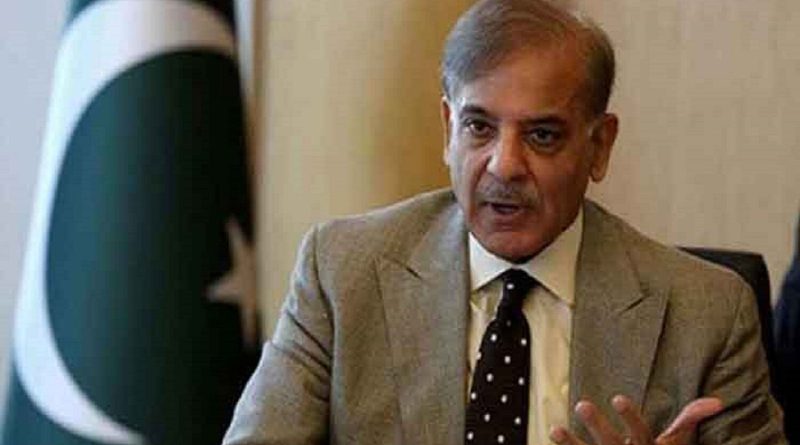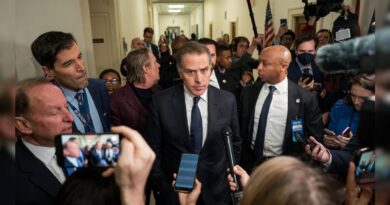Shehbaz Sharif elected Pakistan’s 23rd Prime Minister, replaces Imran Khan
Sharif had emerged as the leader of a united opposition to topple Khan, who has claimed that the US was behind his downfall, which Washington has denied.
Shehbaz Sharif, the Pakistan Muslim League-Nawaz (PML-N) president, was elected unopposed as the 23rd Prime Minister of Pakistan by the National Assembly on Monday, after a week-long constitutional crisis that climaxed on Sunday when Imran Khan lost a no-confidence vote. Sharif secured 174 votes, while Khan had secured 176 votes in 2018. Ousted premier Khan and most of his party’s lawmakers resigned their seats in the assembly immediately before voting started.
“Mian Mohammad Shehbaz Sharif has secured 174 votes,” announced PML-N leader Ayaz Sadiq, who was chairing the session after the resignation of deputy speaker Qasim Suri ahead of the vote.
Shehbaz, 70, is the younger brother of three-time prime minister Nawaz Sharif, who was barred by the Supreme Court in 2017 from holding public office and subsequently went abroad for medical treatment after serving just a few months of a 10-year jail sentence for corruption charges.
The younger Sharif had emerged as the leader of a united opposition to topple Khan, a former cricket star who has claimed that the United States was behind his downfall, which Washington has denied.
Sharif said a selected prime minister was removed using constitutional and legal means, the first time a PM was removed through a no-confidence motion.
“For the past week, there has been a drama and lies were being told, there was a talk about some letter, even I have not seen this letter. This was the fraud perpetrated with the country,” he said in the parliament after being elected as PM.
Sharif added that will he will immediately resign if the letter about a “foreign conspiracy” is proved to be genuine.
He has served as chief minister of the country’s most populous and politically crucial Punjab province thrice. Former president and Pakistan Peoples Party (PPP) co-chair Asif Ali Zardari had proposed Shehbaz’s name for prime minister’s position in a joint opposition’s meeting to replace Khan through a no-confidence motion.
Khan’s Pakistan Tehreek-e-Insaf (PTI) party had also submitted papers nominating former foreign minister Shah Mahmood Qureshi as its candidate for prime minister.
“I announced a boycott of the election,” Qureshi said. “We announce we (the party lawmakers) will submit our resignations. We reject becoming a part of this illegitimate process.”
Ahead of the election, the PTI party held a meeting and decided to boycott the National Assembly session.
The PTI party had 155 lawmakers in the 342-seat chamber, although more than a dozen had said they would cross the floor ahead of Sunday’s no-confidence vote.
Sharif’s first task will be to form a cabinet that will also draw heavily from the centre-left Pakistan Peoples Party (PPP), as well as find space for the smaller conservative Jamiat-ulema-e-Islam-F (JUI-F) group.
No elected prime minister has completed a full term in the nuclear-armed nation since it won independence from colonial power Great Britain in 1947, though Khan is the first to be removed by a no-confidence vote.
The military has ruled the country of 220 million people for almost half its nearly 75-year history. It viewed Khan and his conservative agenda favourably when he won the election in 2018.
But that support waned after a falling-out over the appointment of a military intelligence chief and economic troubles that last week led to the largest interest rate rise in decades.
Khan remained defiant following his defeat in parliament.
Thousands of Khan’s supporters gathered in cities, including Karachi, Lahore and Peshawar, for protests against his ouster that went on until the early hours of Monday. They blocked roads and shouted slogans against rival parties and the US government.
Buoyed by hopes for political stability, the Pakistan Stock Exchange (PSX) on Monday rose 1,429.52 or 3.2% at the start of trading. The Pakistani rupee strengthened to 183.25 against the dollar, Pakistan Exchange Companies Association said, after closing at a record low of 188 on Thursday.
The voting on the no-confidence motion against the Khan-led PTI government was held in the country’s National Assembly, with 174 members recording their votes in favour of the motion that ousted the government.




